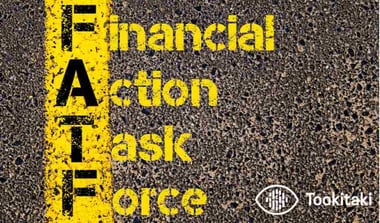Introducing Financial Conduct Authority: Money Laundering in The UK
What is the Financial Conduct Authority (FCA)?
The Financial Conduct Authority is a non-governmental organisation that regulates the financial services industry in the United Kingdom.
Following the Financial Services Act (2012), the Financial Conduct Authority (FCA) was founded in 2013 to replace the Financial Services Authority (FSA). The FCA was established with a new regulatory framework and a mission to ensure the stability of the UK's financial markets as well as the safe conduct of financial service organisations.
The FCA's regulatory jurisdiction includes the Prudential Regulatory Authority of the Bank of England (another FSA successor) and the Financial Policy Committee. The FCA is in charge of around 58,000 enterprises that employ 2.2 million people and generate £65.6 billion in annual tax income for the UK economy.
What is the role of the FCA?
The FCA has broad authorities that it uses to achieve three operational goals:
- To provide customers with an adequate level of protection
- To improve market integrity and safeguard the financial system of the UK
- In order to encourage competition in the consumer's best interests
The FCA has the authority to create and enforce regulations that govern the financial services industry in the UK, and it has the authority to investigate both organisations and individuals suspected of breaking them. The FCA's authority encompasses the following areas:
FCA Supervision
The FCA establishes minimum standards that financial services products, such as pensions, credit cards, ISAs, and investments, must achieve in order to join the market, and it has the authority to require companies to withdraw or amend goods that do not match those standards. Finally, the FCA has the power to impose a one-year ban on financial products before deciding whether to extend the prohibition indefinitely.
FCA Regulations
The FCA is in charge of supervising banks and other payment institutions to ensure that they treat their clients fairly, operate properly, and do not impede competition or pose unacceptable dangers to the UK economy. The FCA is particularly concerned about money laundering, and banks and other financial institutions must follow special AML compliance standards, which include monitoring suspicious behaviour, conducting risk assessments, and assigning reporting officers.
Authorisation
All UK financial service providers, investment businesses, and consumer credit firms must register and be licensed, according to the FCA. The application process, which can take anywhere from 6 to 12 months, has a fee attached to it. Firms must show that they comply with regulatory requirements and that they will cooperate with the FCA in an open and proactive way.
Read More: What is HM Revenue and Customs (HMRC)?
Industries, Sectors, and Firms
Banks
Financial Services are regulated by The Financial Services Act (2012), which was introduced as a new system and implemented to protect and boost the UK economy.
The Financial Conduct Authority (FCA) monitors banks to ensure they:
- Treat customers fairly
- Encourage healthy competition and nurture innovation
- Aid the FCA in identifying potential risks before they manifest, so they can take preventive measures
Mutual Societies
The UK is home to over 10,000 mutual societies.
The Financial Conduct Authority (FCA) ensure they:
- Register new mutual societies
- Keep public records
- Receive annual returns
Financial Advisers
Rules for Independent Financial Advisers (IFAs) came into action in 2012.
To be authorised as an IFA, businesses are required to:
- Provide a wide range of retail investment products
- Offer honest, unbiased, and unrestricted advice to consumers based on a fair and comprehensive analysis of the market
FCA Beyond the UK
The FCA engages with their regulatory peers, such as:
- The European Union
- EU institutions
- European Supervisory Authorities (ESAs)
- European Securities and Markets Authority (ESMA)
- European Banking Authority (EBA)
- European Insurance and Occupational Pensions Authority (EIOPA)
Around the world, the FCA is dedicated to international engagement with other global standard setters and regulatory bodies. The FCA is a member of:
- International Organisation of Securities Commissions
- International Association of Insurance Supervisors
The FCA participates in the UK’s membership of the Financial Stability Board, as well as the government’s efforts with the Financial Action Task Force (FATF). They are also members of the International Financial Consumer Protection Organisation (FinCoNet) and work with the Organisation for Economic Co-operation and Development (OECD).
To learn more about our award-winning intelligent compliance and AML solutions and how they can transform your processes, speak to a member of the team today.
Anti-Financial Crime Compliance with Tookitaki?



